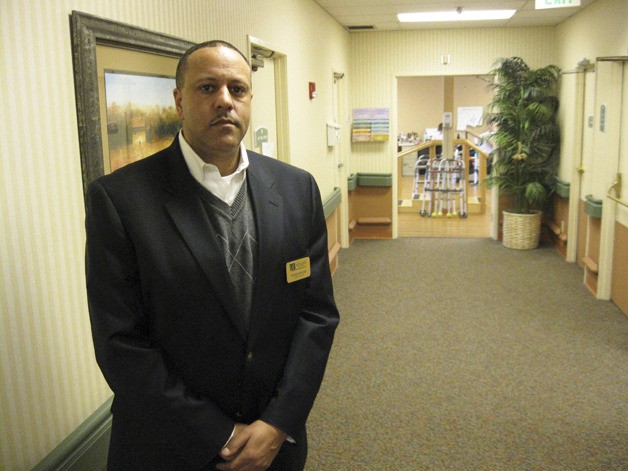Roger Moore foresees trouble.
The state budget crisis adversely will impact the quality of care in nursing homes.
Auburn, like many communities throughout the state, will feel the pain if such deep cuts prevail in the coming fiscal season.
“It’s difficult to do now,” said Moore, administrator for Regency Auburn Rehabilitation Center, a skilled nursing community. “These cuts go through, and it’s going to be almost impossible to maintain the quality of care.”
Nursing homes and other around-the-clock facilities will be severely pinched. The recently passed state supplemental budget cuts nursing facility funding by $15.8 million over the last three months of fiscal year 2011, equating to reductions of more than $20 per day for Medicaid residents.
When combined with federal matching funds, the state’s 240 skilled nursing homes would lose $115.7 million for 30 months beginning January 2011. Budget cuts would threaten the continued employment of an estimated 2,000 caregivers.
Gov. Chris Gregoire’s budget for the 2011-13 biennium would cut an additional $60 million from Medicaid rates that already fall below the cost of care.
Nursing home officials says those losses are not sustainable. Less funding means less care, fewer jobs and more risks to patient care and their supporting families.
“Labor would be impacted,” Moore said without hesitation. “Significant cuts. And were already at bare bones now.”
‘SNA’ is one answer
Industry officials are hoping the Legislature will warm to the idea of a sufficient remedy. Legislators in Olympia are examining whether a proposed “Safety Net Assessment” (SNA) is the answer. The SNA, which the Legislature already adopted for hospitals in 2010, would increase nursing home funding by $80 million per year utilizing the same federal rules that 37 other states have used to support their nursing homes, said Gary Weeks, a strategic consultant for Regency Pacific Inc.
The SNA is working for hospitals. Under the new law, Washington hospitals are assessed a fee on all non-Medicare patient days. The fees are used to obtain new federal Medicaid matching funds. The assessment and the matching funds flow through a new dedicated account administered by the state. Most of the assessment benefits are returned to hospitals, but the state will receive more than $50 million in each of the two biennia to support critical health care programs. The assessment sunsets on June 30, 2013, at a time when the state’s revenues should be more secure.
Similarly, adopting the SNA proposal would maintain quality care in nursing facilities, Weeks explains, as well as generate $30 million over the biennium for the state.
Several lawmakers are backing the SNA proposal with a Senate and companion House bill.
“We’re optimistic it will pass,” Moore said.
The SNA, officials say, is not a tax and requires no additional state funding to meet its objectives.
Washington nursing homes would pay an assessment that would create a state fund that would be enhanced with additional, matching federal revenue. These assessments and the federal matching funds would then be returned to nursing homes as part of their daily rates with those having a higher level of Medicaid participation receiving a proportionately larger increase in Medicaid revenues. The funds would be used to restore cuts made in the 2010 legislative session and make unnecessary the proposed $99.9 million cuts proposed for the upcoming biennium. Finally, the remaining funds would be used to adjust nursing facility rates closer to the state-specified allowable costs to ensure the provision of quality care.
Critics claim that the SNA is a “tax” on private paying residents – if the legislature adopts the proposed budget cuts, it is a certainty that private payer’s rates will increase because the only place a nursing home provider can adjust rates to make up for the Medicaid budget cuts is by increasing private payer’s rates. Under the SNA proposal, nursing facility providers are statutorily prohibited from raising private payer’s rates to make up for any funding shortfall.
Under the SNA proposal, 205 of the states nursing homes will receive increased funding for services and 13 will receive a net ($1.8 million) reduction. Of the 13 who will receive a reduction, eight are part of a larger, statewide system that will, overall, receive increased funding from the SNA.



